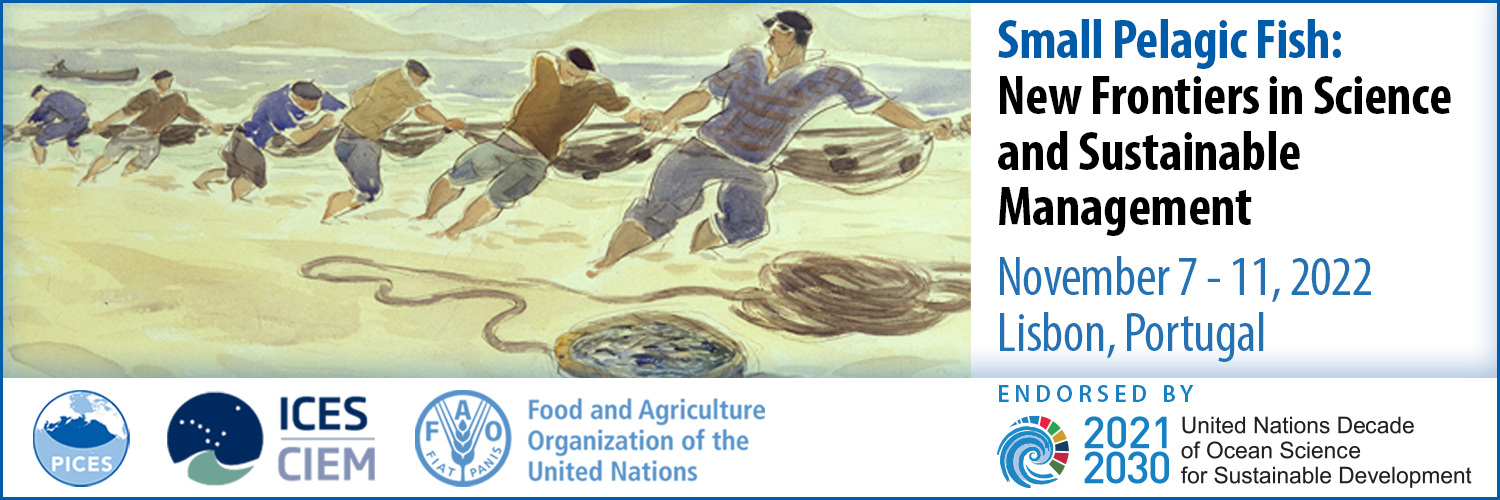
Plenary and Invited Speakers
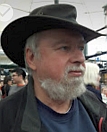
Jürgen Alheit Germany
Dr. Jürgen Alheit is a retired German fisheries biologist who is interested in the impact of climate variability on small pelagic fish and their ecosystems. He worked in marine science institutions in the UK, Germany, and Peru and for the Intergovernmental Oceanographic Commission (IOC) of UNESCO in Paris where he was responsible for the Programme on Ocean Sciences in Relation to Living Resources of which the Sardine–Anchovy Recruitment Project (SARP) was a major component. Jürgen chaired the German Global Ocean Ecosystem Dynamics (GLOBEC) project and served on the GLOBEC International Scientific Steering Committe throughout its entire duration. Within GLOBEC, he led the Small Pelagic Fish and Climate Change (SPACC) Initiative and the Retrospective Analysis Modul. In 2017, Jürgen was the convenor of the International Symposium on “Drivers of Dynamics of Small Pelagic Fish Resources“ in Victoria, Canada.
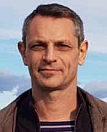
Arnaud Bertrand French National Research Institute for Sustainable Development (IRD), France
Dr. Arnaud Bertrand is a Senior Scientist at the French National Research Institute for Sustainable Development (IRD). He is also an Honorarium Professor at the Universidad Nacional Mayor de San Marcos in Peru and a Visiting Professor at the Universidade Federal de Pernambuco (UFPE) and the Universidade Federal Rural de Pernambuco (UFRPE) in Brazil. Arnaud has worked for more than 15 years on the Humboldt Current system. He lived 3 years in Chile and 6 years in Peru, conducting research in partnership with local institutions, in particular with the Instituto del Mar del Perú (IMARPE), and was the main convenor of the 2006 International Conference on “The Humboldt Current System: Climate, ocean dynamics, ecosystem processes, and fisheries” held in Lima. Arnaud co-coordinated the first phase of the Franco-Peruvian International Joint Laboratory (IJL) “Dynamics of the Humboldt Current system” (DISCOH, 2010–2014) and is currently co-coordinating the Franco-Brazilian IJL “Tropical Atlantic Interdisciplinary Laboratory on physical, biogeochemical, ecological and human dynamics” (TAPIOCA, 2018–2022). Although specialized in the use of active acoustics to extract simultaneous information on a variety of biotic and abiotic components (‘ecosystem acoustics’), his research is mainly transdisciplinary. Indeed, in collaboration with colleagues from a variety of disciplines, he develops holistic approaches to study ecosystem processes, human included, from wind to plate.

Marta Coll Institute of Marine Science (ICM-CSIC), Spain
Dr. Marta Coll is a Senior Researcher at the Institute of Marine Science (ICM-CSIC), Barcelona, Spain. Her research focuses on understanding patterns and processes that characterize marine ecosystems and, in particular, changes of, and threats to, marine biodiversity. She studies population, community and food-web dynamics linked with human activities (such as fisheries, climate change, eutrophication, and invasive species), and how these translate into changes in ecosystem structure and functioning, and services that humans obtain from the ocean. Marta develops and applies a variety of ecological analyses such as spatial-temporal ecosystem modelling techniques and their link with statistical tools, using historical data, fisheries statistics, experimental results and field data sets. She currently works on developing and testing scenarios of future trajectories of change to find best solutions for resilient and transformative management of marine resources within a context of climate change.
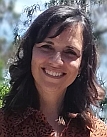
Susana Garrido Portuguese Institute for Sea and Atmosphere (IPMA), Portugal
Dr. Susana Garrido is a Senior Researcher at the Portuguese Institute for Sea and Atmosphere (IPMA). She obtained her PhD in Marine Ecology at the University of the Algarve, Portugal. He research mainly focuses on the trophic dynamics of pelagic fish, stock structure and understanding the impact of environmental variability on population dynamics. In her work, Susana uses complementary techniques, from laboratory experimentation to gut content analysis, fatty acid biomarkers stable isotopes. Her additional research interests include zooplankton ecology and maternal effects. Susana currently leads the Research Group on Coastal Pelagic Fish at IPMA and has been trying to provide managers with environmental indicators of population dynamics for pelagic species.
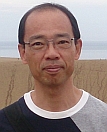
Shin-ichi Ito Fisheries Environmental Oceanography (FEO), Atmosphere and Ocean Research Institute, the University of Tokyo, Japan
Dr. Shin-ichi Ito is a Professor of Fisheries Environmental Oceanography at the Atmosphere and Ocean Research Institute, the University of Tokyo. He is broadly interested in climate impacts on ocean ecosystems, with particular interest in the formation of ecological hotspots by ocean currents, fish response to climate variability and change, and comparative studies on fish responses to global climate. Shin-ichi was responsible for the development a fish growth model coupled to the lower-trophic-level ecosystem model NEMURO.FISH (North Pacific Ecosystem Model for Understanding Regional Oceanography For including Saury and Herring). His laboratory conducts swimming and respirometry experiments to estimate the parameters in the model. They also carry out rearing experiments to estimate the relationship between water temperature and otolith oxygen isotope ratio to estimate the migration routes of fish species using otolith microchemistry information. Recently, Shin-ichi and his colleagues are applying ocean environmental DNA (OceanDNA) to detect the distribution of fish species and are actively investigating an overlap of microplastic distribution and fish species. Shin-ichi serves on a couple of editorial boards, as a lead author of the IPCC (Intergovernmental Panel on Climate Change) WG-II Sixth Assessment Report, and as the Vice President of the Oceanographic Society of Japan. He also co-chairs the joint PICES/ICES Working Group (WG 45/WGGRAFY) on Impacts of Warming on Growth Rates and Fisheries Yields.

Modesta Medard World Wildlife Fund (WWF), Tanzania
Dr. Modesta Medard holds a Ph.D. on Natural Resource Governance from Wageningen University (The Netherlands) under SEDEC project: Social Ecological Drivers of Ecosystem Changes in Lake Victoria. She is an accomplished social scientist with more than 25 years’ experience in small-scale fisheries across the African Great Lakes and Indian Ocean coastal communities and has an extensive record of publications in international journals, articles and books. In her current role, Dr. Medard leads the World Wildlife Fund (WWF) National and Regional Seascape programme in the United Republic of Tanzania. Previously, as Head of Socioeconomic Research for the Tanzania Fisheries Research Institute (1991–2004), Modesta managed various projects and programmes under the European Union Lake Victoria Fisheries Projects, World Bank Environmental Management Project (Phase I), and International Union for Conservation of Nature (IUCN)–The Socioeconomics of Nile Perch. She worked as the Manager of Community Fisheries for Eastern African Marine Ecoregion for the WWF (2004–2008) and as the African Great Lakes Project Manager with The Nature Conservancy (2015–2016) before joining WWF in May 2019 as Head of the Seascape programme. Her primary areas of research include Fisheries Co-management, Community-based Natural Resource Management, and Governance of Natural Resources, Gender, Markets and Fisheries Globalization.

Martin Pastoors Pelagic Freezer-trawler Association (PFA)
Dr. Martin Pastoors is the Chief Science Officer at the Pelagic Freezer-trawler Association (PFA). In this role he initiates and coordinates research activities within the fishing industry and functions as the linking pin between fisheries science and fisheries practice. Based on the industry research activities, he provides scientific input to several international expert groups on stock assessment. Previously, Martin was a Senior Researcher at RIVO/IMARES, Netherlands (1997–2014), with a specialization in fisheries science and advice, and marine governance. He has coordinated and participated in several European research projects on fisheries science, fisheries governance and marine spatial planning. Martin served as the Chair of the ICES Advisory Committee on Fishery Management (ACFM, 2006–2007) and Vice-Chair of the ICES Advisory Committee (ACOM, 2008). He has been a Chair and member of many ICES expert groups.
Talk [pdf, 4.5 MB]
Sustainable collaborative approaches between the fishing industry and fisheries science
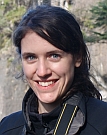
Desiree Tommasi Cooperative Institute for Marine Ecosystems and Climate (CIMEC), University of California, Santa Cruz, USA
Dr. Desiree Tommasi is a research scientist at the Cooperative Institute for Marine Ecosystems and Climate of the University of California, Santa Cruz, working at the National Oceanographic and Atmospheric Administration’s Southwest Fisheries Science in La Jolla, CA, USA. She received her BSc and MSc in Biology from Simon Fraser University, Canada, and her PhD in Oceanography from the University of British Columbia, Canada. Desiree is a biological oceanographer whose research aims to understand the effects of climate change and climate variability on marine ecosystems, and to apply this understanding in support of fisheries management decisions. Her recent work has focused on assessing how state-of-the-art seasonal to multi-annual climate predictions can be incorporated into fisheries management frameworks to improve fisheries forecasts, harvest guidelines, and other benchmarks routinely employed by fisheries managers. Desiree is also developing management strategies evaluations for highly migratory species, such as albacore tuna, in the North Pacific and is leading a multidisciplinary project assessing performance of current and alternative management strategies for small pelagic fisheries in the California Current under climate change.
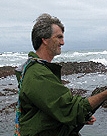
Carl van der Lingen Department of Forestry, Fisheries and the Environment (DFFE), South Africa
Dr. Carl David van der Lingen was awarded his PhD in Zoology in 2000 by the University of Cape Town, South Africa, for research on the trophic ecology of sardine in the Southern Benguela upwelling ecosystem. He has been employed as a fisheries scientist in South Africa since 1990 and is presently a Specialist Scientist in the Chief Directorate: Fisheries Research and Development of the Branch: Fisheries Management of the national Department of Forestry, Fisheries and the Environment (DFFE). His research is focused primarily on the biology, ecology and population structure of small pelagic fishes off South Africa and their role in ecosystem functioning, and contributes to the ecosystem approach to management of the fisheries for these species. Carl’s additional research fields are: biological and ecological work on several other marine species, both exploited and unexploited, including epipelagic, mesopelagic and demersal fish, and the application of multi-method approaches to study population structure; examination of heavy metal and microplastic pollution in marine species; documenting climate change impacts on the southern African marine environment, the species it contains and the fisheries they support, to improve understanding of likely future impacts; and, most recently, documenting the parasite fauna of South African marine fishes and examining the trophic ecology and ecosystem role of mesopelagic fishes in the Benguela.
Carl is a member and previous chair of several Scientific Working Groups within the Chief Directorate: Fisheries Research and Development, and sits on several other national and regional Task Teams and Working Groups. He is also an Honorary Research Associate of the University of Cape Town, a Senior Research Fellow of the University of the Western Cape, South Africa, a member of the Editorial Board of Fisheries Oceanography, and an Editor of the African Journal of Marine Science. Carl has enjoyed substantial international collaboration throughout his career and is presently collaborating in the ICES/PICES Working Group on Small Pelagic Fishes, the Trophic Transfer Efficiency in the Benguela Current (TRAFFIC) project, the Effects of Long Chain Omega-3 Fatty Acids Trophic Shortage on Small Pelagic Fish and Human Populations (OMEGA) project, the Biodiversity on the run: evolutionary and socio-economic consequences of shifting distribution ranges in commercially exploited marine fishes (GenClim) project, and the FAO/EAF Nansen programme, amongst others. Carl has authored or co‐authored more than 100 peer-reviewed scientific publications, 19 of which have been cited >100 times, has an H-index of 46 and a ResearchGate (RG) score of 36.4, and has co‐supervised 6 PhD, 25 MSc and 19 BSc[Hons] students to graduation, principally at, but not limited to South African universities.
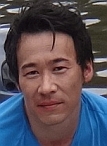
Akinori Takasuka Fisheries Biology Laboratory, Graduate School of Agricultural and Life Sciences, the University of Tokyo, Japan
Dr. Akinori Takasuka is a Professor of the Fisheries Biology Laboratory in the Department of Aquatic Bioscience at the Graduate School of Agricultural and Life Sciences, the University of Tokyo, Japan. After completing his PhD in 2003, he worked for the National Research Institute of Fisheries Science, Japan Fisheries Research and Education Agency. In April 2019, Akinori has returned to the school where he studied for his BSc, MSc, and PhD, and his focus now is on education of junior fellows of the Fisheries Biology Laboratory. Akinori has been working in the fields of Fisheries Biology and Oceanography. His current major research themes include biological mechanisms behind climate impacts on population dynamics of small pelagic fish, growth and survival dynamics during the early life stages of fish, and density-dependent and density-independent processes in the life history of fish.
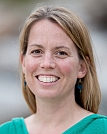
Mary Hunsicker Northwest Fisheries Science Center (NWFSC), NOAA, USA
Dr. Mary Hunsicker is a research ecologist at the National Oceanographic and Atmospheric Administration’s (NOAA) Northwest Fisheries Science Center (NWFSC) in Newport, Oregon, USA. Her research interests focus largely on understanding the effects of climate variability on species distributions, food web interactions, phenology, and community dynamics. She is currently leading collaborative research projects that aim to identify ecosystem thresholds that may be useful for informing ecosystem-level reference points for fisheries management, and to develop a modeling framework to track and forecast changes in ecosystem state in relation to climate perturbations. The goal of this framework is to provide the earliest possible detection of an ecosystem shifting into a novel state. Mary is a Co-Chair of the PICES and ICES working groups on Common Ecosystem Reference Points. Prior to working for NOAA, Mary was a marine ecologist at the National Center for Ecological Analysis and Synthesis (University of California, Santa Barbara) where she worked with a large, collaborative team on advancing the science of ocean tipping points.
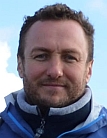
Renato Salvatteci Center for Ocean and Society, Kiel University, Germany
Dr. Renato Salvatteci has worked for more than 15 years on reconstructing past changes in fish population variability at multiple time scales using an interdisciplinary approach, including paleoceanography, biogeochemistry and fish ecology. He is particularly interested in the local and remote factors driving changes in productivity and sub-surface deoxygenation in Eastern Boundary Upwelling Systems during the last 140 000 years, and the respective response of small pelagic fishes to past changes in oceanic and climatic conditions at multi-decadal to millennial time scales. His core issue is to provide scientific evidence to develop an adaptive local fishery management under globally warmer ocean conditions. Renato has studied fisheries engineering in Lima, Peru, and marine ecology in Mexico. He earned his PhD in Environmental Sciences at the Université Paris VI, France, and was then affiliated as an Alexander von Humboldt post-doctoral fellow to the Institute of Geosciences at Kiel University, Germany. After several years as a post-doctoral researcher in the SFB 754 project “Climate – Biogeochemistry Interactions in the Tropical Ocean”, Renato is now a work package leader in the Humboldt Tipping Points project at the Center for Ocean and Society at Kiel University.

Noelle Bowlin Southwest Fisheries Science Center (SWFSC), NOAA, USA
Dr. Noelle Bowlin is a fisheries biology researcher at the National Oceanographic and Atmospheric Administration’s (NOAA) Southwest Fisheries Science Center (SWFSC) in La Jolla, California, and is the NOAA lead of the California Cooperative Oceanic Fisheries Investigations (CalCOFI) program. Noelle manages teams to conduct the quarterly CalCOFI cruises to monitor marine species and the effects of climate variability in the California Current Ecosystem, with a primary focus on coastal pelagic species such as sardine, anchovies, and mackerels. Her research focuses on larval fish dynamics, particularly with respect to habitat use, the effects of environmental variability, and anthropogenic stressors. Noelle understands that women and other underrepresented groups face barriers to science and, as part of her long-standing commitment to diversity, is a member of the NOAA SWFSC Team for Inclusion, Diversity, and Equity (TIDE) working group. Noelle received her M.S. in Marine Biology in 2011, and her Ph.D. in Biological Oceanography in 2016, both from Scripps Institution of Oceanography, University of California, San Diego.

Carryn de Moor University of Cape Town, South Africa
Dr. Carryn de Moor completed her PhD in Biomathematics at Imperial College, London in 2002. She has since formed part of the Marine Resource Assessment and Management (MARAM) Group, based at the University of Cape Town, South Africa. Carryn's research focuses on the quantitative assessment of marine resources and sustainable fisheries management, with a particular interest in advancing best practices for Management Strategy Evaluation. This has included serving on the International Whaling Commission’s Scientific Committee for the past 14 years, with a focus on developing Implementation Simulation Trials to test the Revised Management Procedure for baleen whales. Having been a member of the South African Department of Forestry, Fisheries and the Environment’s Small Pelagics Scientific Working Group for two decades, Carryn has also developed an interest in managing the fisheries of these highly dynamic species to account for spatial structure in the underlying populations and trade-offs in competing objectives.
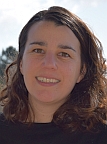
Elena Ojea CIM-Universidade de Vigo, Spain
Dr. Elena Ojea is a senior researcher at CIM-Universidade de Vigo (Spain) currently leading the Future Oceans Lab, conducting research on adaptation solutions for marine social-ecological systems that allow for sustainable management, equity and livelihood support. In 2016, she was granted a Starting Grant from the European Research Council for the project CLOCK: Climate Adaptation to shifting stocks to look at fisheries management regulations threatened by climate change. Elena holds an undergrad in Environmental Sciences and a PhD in Economics, and has experience as a post-doc and research fellow at the Basque Centre for Climate Change (BC3), and as a visiting scholar at the Bren School for Environmental Science and Policy (USA). She is currently involved in climate risk and vulnerability assessments in two European projects (FutureMARES and MPA-Adapt), funded by H2020 and Interreg-Med program, and is one of the co-authors of the Blue papers on the future of seafood and the impacts of climate change on the ocean economy, commissioned by the High Level Panel for a Sustainable Ocean Economy. Since 2018, Elena is contributing, as a lead author in the oceans chapter, to the Working Group II on Impacts and Adaptation of the IPCC (Intergovernmental Panel on Climate Change) Sixth Assessment Report.
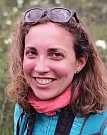
Marta Albo-Puigserver Spanish Institute of Oceanography (IEO-CSIC), Oceanographic Centre of the Balearic Islands (COB), Spain
Dr. Marta Albo-Puigserver is a postdoctoral researcher at the Spanish Institute of Oceanography (IEO-CSIC), Oceanographic Centre of the Balearic Islands, Spain. She received her MSc and PhD in Marine Sciences from the Institute of Marine Science of Barcelona (ICM-CSIC), where she studied the ecological and functional role of small pelagic fish in the Mediterranean Sea. After concluding her PhD, she worked on vulnerability assessment and adaptation of fisheries to climate change at the Centro de Ciências do Mar (CCMAR), University of Algarve, Portugal. Marta is a marine ecologist specialized in the study of life-history traits, trophic ecology and energy dynamics of exploited marine species. She is particularly interested in understanding the effects of climate variability on the life-history traits of exploited species and how this affects marine food webs. The final aim of her research is to use this ecological knowledge for evaluating the vulnerability of marine resources and its socio-economic impact to support fisheries management and marine conservation strategies.
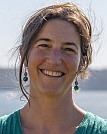
Laure Pecquerie Laboratory of Environmental Marine Sciences (LEMAR French National Research Institute for Sustainable Development (IRD), France
Dr. Laure Pecquerie is a researcher at the French National Research Institute for Sustainable Development (IRD) working at the Laboratory of Environmental Marine Sciences (LEMAR) in Brest, France. After completing her PhD in Fisheries Sciences and a double doctorate in Theoretical Biology, she worked at the Ecology, Evolution and Marine Biology Department of the University of California, Santa Barbara, USA. Laure has been working for more than 15 years on the development and application of Dynamic Energy Budget (DEB) theory to evaluate the impact of environmental stressors on marine organisms, with a particular focus on small pelagic species. She has been developing full life cycle models, which integrate these stressors, to better understand their impacts at the population scale. Laure is part of the teaching team of the International DEB course that takes place every two years, and she was one of the curators of the AmP collection – an online database of DEB models, parameters and codes more than 3000 species, including a large number of marine species. She is currently co-leading an international interdisciplinary project assessing the effects of a potential decreased trophic availability of long-chain fatty acids omega-3 on small pelagic fish and human populations, with a particular focus on Eastern Boundary Upwelling Systems.
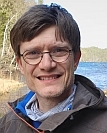
Joël Durant Centre for Ecology and Evolution Synthesis (CEES), University of Oslo, Norway
Dr. Joël Durant is a senior researcher at the Centre for Ecology and Evolution Synthesis (CEES) at the Department of Biosciences of the University of Oslo, Norway. His research focusses on understanding the influence of environmental variability on species interactions within a wide range of ecosystems. Starting from seabird ecology, his work is now largely centering on the commercial fish stocks, particularly of the Barents Sea. Joël is mainly interested in the relationship between predator-prey abundance, time synchrony (e.g. match-mismatch) and reproductive success at different trophic level and life stages. He is leading the Marine Ecology group at CEES, which over a decade has shown competence in answering ecological questions around climate change and marine productivity through statistical analysis and interdisciplinary collaborations.
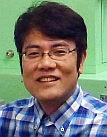
Michinobu Kuwae Center for Marine Environmental Studies, Ehime University, Japan
Dr. Michinobu Kuwae is an associate professor at the Center for Marine Environmental Studies, Ehime University, Japan. He has worked for 16 years on reconstructing past changes in fish populations during the Holocene using an interdisciplinary approach, including paleoceanography, biogeochemistry, and micropaleontology. His interests lie in the factors driving changes in algal and zooplankton productivity in the western North Pacific, and in the response of Japanese sardine and anchovy to past changes in oceanic and climatic conditions at multi-decadal to millennial time scales. Recently, Michinobu and his colleagues have been applying sedimentary ancient DNA (Sed aDNA) to detect long-term population dynamics of fish species in the western North Pacific. He received his PhD in Biology and Geosciences from the Osaka City University where his focus was mainly on paleoclimate and micropaleontological studies using lake sediments.
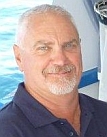
Tim Ward Institute of Marine and Antarctic Studies (IMAS), University of Tasmania, Australia
Dr. Tim Ward was recently appointed as an Associate Professor in Fisheries Science at the Institute of Marine and Antarctic Studies (IMAS) within the University of Tasmania, Australia. The focus of his new role is to establish a pelagic fisheries research capability at IMAS. Prior to this new appointment, Tim was a Principal Research Scientist at the South Australian Research and Development Institute (SARDI) in Adelaide, Australia. During his time at SARDI, Tim led the Fisheries Science Program (2003–2013) and, more recently, the multi-disciplinary Marine Ecosystems Science Program. Dr. Ward has led research on two of Australia’s largest fisheries, the South Australian Sardine Fishery and Commonwealth Small Pelagic Fishery, for more than two decades. In both fisheries, estimates of spawning biomass obtained by the Daily Egg Production Method (DEPM) are the primary biological performance indicator used to set Total Allowable Catches. The multi-institutional research teams that Tim has led routinely apply the DEPM to stocks of sardine, anchovy, blue mackerel (Scomber), jack mackerel (Trachurus) and Redbait (Emmelichthys) off south-eastern Australia. The team is currently evaluating the potential for using these surveys, which collectively cover hundreds of thousands of square kilometres, to monitor the status of pelagic ecosystems using DNA-metabarcoding. Tim has supervised numerous honours and Ph.D. students.

Amy Schueller Southeast Fisheries Science Center (SEFSC), NOAA, USA
Dr. Amy Schueller is a Research Fish Biologist at the National Oceanic and Atmospheric Administration’s (NOAA) Southeast Fisheries Science Center (SEFSC) in Beaufort, North Carolina, USA. She is the lead assessment analyst for Atlantic menhaden and Gulf menhaden, two small pelagic species that combined support the second largest fishery in the US. Amy was part of a team that developed ecological reference points for management of Atlantic menhaden, which resulted in catch advice for the fishery that accounted for predatory needs. Her research focuses on forage fish dynamics, spatial stock assessments, ecosystem reference points, and any science that supports improving the menhaden assessments. Amy received her PhD in Fisheries and Wildlife from Michigan State University in 2009.
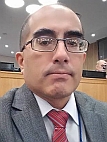
Dimitri Gutiérrez Peruvian Institute of Marine Research (IMARPE), Peru
Dr. Dimitri Gutiérrez is a biological oceanographer at the Peruvian Institute of Marine Research (IMARPE). His studies have been focused on the effects of climate variability on the marine productivity and subsurface oxygenation in the coastal South Eastern Pacific involving paleoproxies and in situ data analyses, benthic responses to natural and human-induced hypoxia, and recent spatial and temporal changes of the Peruvian upwelling as related to global trends. Dr. Gutiérrez has been involved in developing adaptation projects for the impact of climate change on Peruvian fisheries and marine coastal ecosystems and currently is a member of the IOC-UNESCO Global Ocean Oxygen Network (GO2NE). He also leads a graduate program of Marne Sciences at the Universidad Peruana Cayetano Heredia. Dimitri received his PhD degree in oceanography at the University of Concepción, Chile, in 2000.